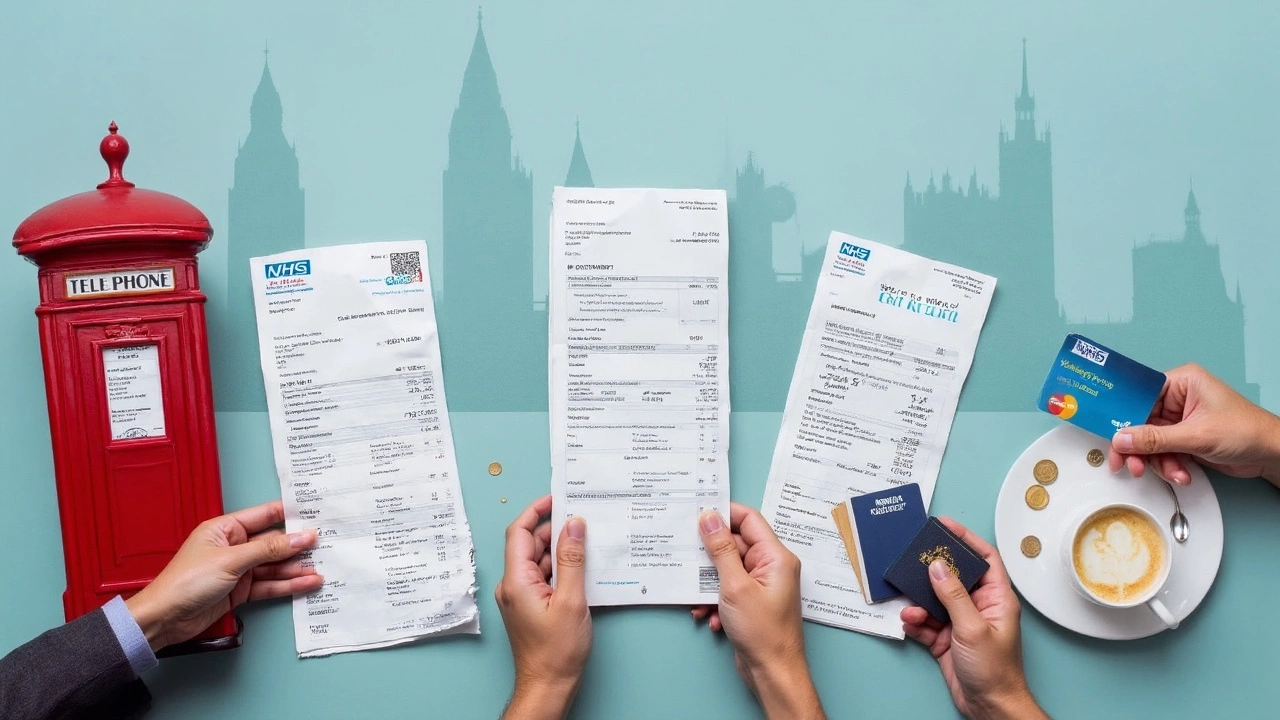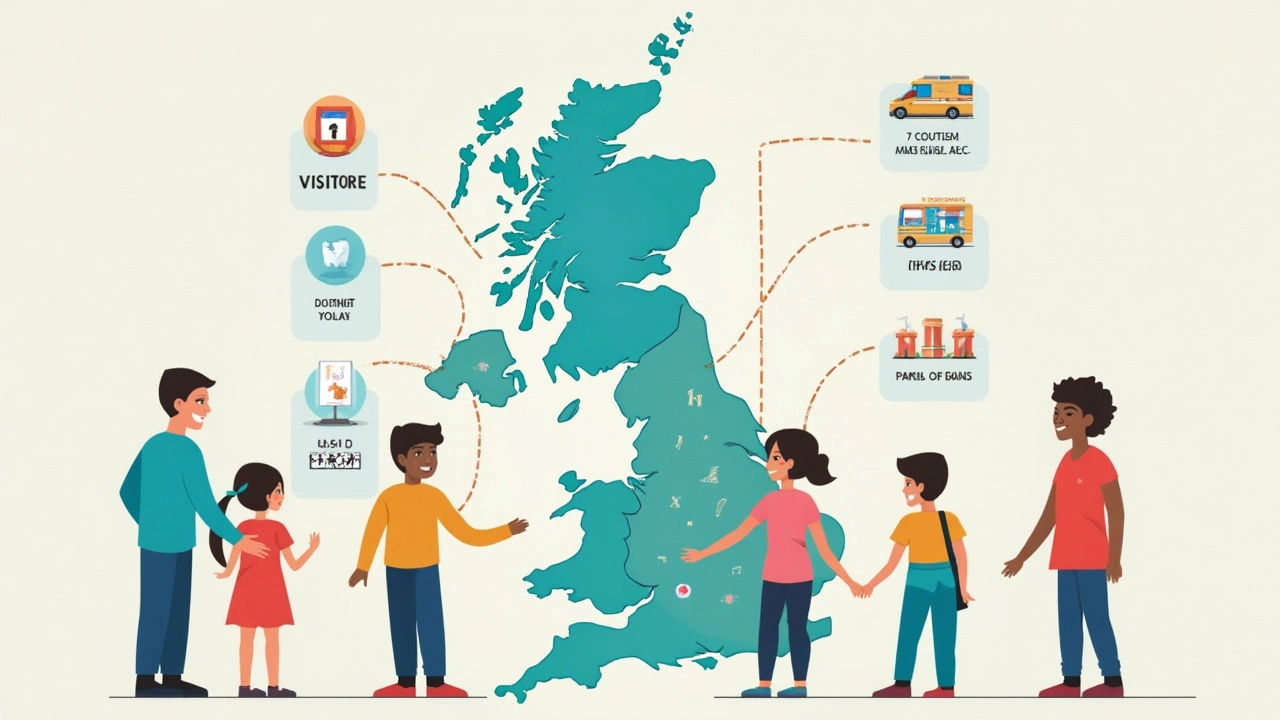
If you think the UK's NHS means healthcare here is totally free, you’re not alone. This belief is super common—even among people who’ve lived in the country for years. The reality is, the NHS does cover most big expenses, like seeing a GP or emergency care. But there are hidden costs that can catch you off guard. Not everything in the system is covered without a price tag.
Here’s the deal: you won’t pay just to visit your local doctor or if you need to rush to A&E. But need a filling at the dentist, pick up a prescription, or get new glasses? Get ready to hand over your debit card. Even things like certain vaccinations, hearing aids, and some specialist treatments aren’t always included.
It helps to know what’s truly free, what isn’t, and how to avoid getting stung by surprise bills. If you’re new to the UK or just trying to figure out how the system works, you’re definitely not alone. Understanding the small print makes life so much easier—especially when you’re not feeling your best.
- The NHS and What It Covers
- When Do You Have to Pay?
- Prescriptions, Dental, and Eye Care
- Health Insurance and Private Options
- Tips to Avoid Surprise Costs
The NHS and What It Covers
The NHS—the National Health Service—was set up to make healthcare available for everyone in the UK. The whole idea is to give access based on need, not on whether someone has a fat bank account. But what does that really mean for you day to day?
First, let’s talk about what’s truly free. If you’re a UK resident, most essential medical treatment costs you nothing at the point of use. Here’s what you get without reaching for your wallet:
- GP (doctor) visits: Book an appointment and it’s free, including home visits if needed.
- Hospital treatment: Emergency care and most treatments when you’re admitted are included.
- Ambulance services: If you need an ambulance in an emergency, you won’t be billed for it.
- Maternity care: Support during pregnancy, birth, and aftercare are all covered.
- Vaccinations: Routine childhood vaccinations and many adult vaccines (like flu for certain groups) are free.
Modern times, same promise: The NHS still handles a huge chunk of healthcare costs. For context, NHS England handled over 364 million GP appointments in 2023, and almost all were free to patients. No cash in hand, no surprise invoices—this is where the NHS stands out compared to many global systems.
But there are a couple of things to keep in mind. If you’re not “ordinarily resident” (meaning you don’t usually live in the UK), you might not get everything for free. Tourists, visitors, or some international students often have to pay for certain treatments unless covered by a specific agreement or have health insurance in place.
The core of it? Everyday illnesses, emergencies, and routine care come without a bill for most folks in the UK. That’s a huge relief if you’ve had to worry about health costs somewhere else. But, as you’ll see in other sections, the list of what’s free ends quicker than people think—so it’s smart to know the gaps.
When Do You Have to Pay?
The NHS promises a lot of free healthcare, but it's not a zero-bill experience for everyone. So, who has to pay—and when?
Here’s the lowdown: if you live in the UK and are “ordinarily resident,” most healthcare costs in hospitals and at your GP are free at the point of use. Emergencies? Covered. Cancer treatment? Covered. COVID-19 treatment? Also free. But things start to add up in a few key areas.
- Prescriptions: In England, adults pay a fixed fee per prescription item—£9.90 each as of April 2025. Scotland, Wales, and Northern Ireland, though? Prescriptions are free for everyone.
- Dental care: NHS dental visits aren’t free unless you’re under 18, pregnant, or on certain benefits. Most adults will pay a standard NHS charge, which ranges from just under £27 for a basic check-up to over £300 for complex treatment.
- Eye care: Eye tests and glasses aren’t usually covered unless you qualify—mainly kids, over-60s, or people on low incomes.
- Non-residents: If you're a visitor, you might have to pay for NHS services. UK tourists usually get emergency care for free, but planned treatments or an ambulance ride could cost you (and sometimes a lot).
- Special treatments or services: Things like travel vaccines, private rooms in hospitals, or certain fertility treatments often come with extra charges, even if you’re a UK resident.
Want to see it at a glance? Here’s a simple breakdown:
| Service | Free? | Typical Cost |
|---|---|---|
| GP Visit | Yes | £0 |
| Prescription (England) | No | £9.90/item |
| NHS Dental Check-up | No | £26.80+ |
| Emergency Care (A&E) | Yes | £0 |
| Eye Test | Usually No | £20-£25 |
The bottom line: most basic NHS treatment is free, but check before you go—especially for things outside GPs or hospitals. If you’re not sure where you stand, it never hurts to ask before saying yes to a service. That’s the best way to dodge unwanted charges for UK healthcare.

Prescriptions, Dental, and Eye Care
This is where the idea of totally free healthcare in the UK really falls apart. While GP appointments and hospital stays don’t cost you a penny upfront, a lot of treatment you actually need—like prescriptions, dentist visits, and eye care—usually isn’t included.
Prescriptions are the one everyone notices first. In England, every standard prescription costs £9.90 per item as of April 2025. That means if your doctor prescribes you three types of medication, you’re paying just under thirty quid. Scotland, Wales, and Northern Ireland? Lucky you—it’s all free there. But if you’re in England, it’s pay-as-you-go unless you fit into certain groups, like kids under 16, full-time students aged 16–18, folks over 60, pregnant women, or those with specific medical conditions, who are all exempt.
| Country | Prescription Cost (per item) |
|---|---|
| England | £9.90 |
| Scotland | £0 |
| Wales | £0 |
| Northern Ireland | £0 |
Dental care is a whole different story in UK healthcare. NHS dental charges are split into three bands, depending on what needs doing. You’ll pay £26.80 for a checkup (Band 1), £73.50 if you need a filling or extraction (Band 2), and up to £319.10 for things like crowns or dentures (Band 3). Compare that with a private visit, which starts much higher and the NHS looks like a bargain—but it’s a cost a lot of people don’t expect.
Eye care is mostly up to you. NHS eye tests are only free if you’re under 16, over 60, on certain benefits, or have specific eye conditions. Glasses? You’re buying those yourself, unless you qualify for help—and a standard NHS voucher might not even cover the cost of basic frames. Contact lenses? Not covered at all.
- In England, most people pay up front for prescriptions, dentist visits, and eye tests.
- Some groups get these free, so check if you are eligible. NHS websites have clear lists you can use.
- If you need multiple prescriptions, consider an NHS Prescription Prepayment Certificate (PPC). It can save you money if you’re on more than one medicine long-term.
For lots of folks—especially those new to UK healthcare—these charges catch you off guard. Always double-check what’s included so you aren’t hit with a bill when you least expect it.
Health Insurance and Private Options
Even though UK healthcare from the NHS covers loads of day-to-day stuff, there are times when people want more choice, shorter waits, or extra comforts. That’s where health insurance and private healthcare come in.
Private health insurance isn’t just for the super rich or big companies. Plenty of people—especially those who don’t like waiting lists—pay for coverage to get faster treatment, private rooms, or see a specialist at a hospital they pick. Most policies cover things the NHS sometimes leaves out, like physio, extra cancer drugs, or mental health services. Just keep in mind: private insurance usually doesn't cover A&E visits or chronic condition management, so it’s more about the extras and convenience than full replacement.
Many companies offer private insurance as a perk for employees. If you go this route yourself, costs vary a lot. For a healthy adult under 40, basic cover can be about £30-£50 per month. If you’re older, have pre-existing conditions, or want top-notch extras, expect the price to go much higher. Healthcare costs can add up fast with things like scans, consultations, or surgery—so having insurance might make sense if you’re after peace of mind or specific treatments.
| Type | Average Monthly Cost (Individual, Age 30-40) |
|---|---|
| Basic Insurance | £30-£50 |
| Comprehensive | £80-£120 |
If insurance feels too much, you can always pay out of pocket for one-off private treatments. An initial private GP appointment can cost around £70-£100, and a specialist consultation usually starts at about £200. A lot of people do a mix: using the NHS for most things, with private insurance or cash for the bits they want done quicker or with specific doctors. That way, you can take full advantage of both systems while avoiding the worst waits or gaps.
Quick tips for picking health insurance in the UK:
- Check if your work gives you a policy, even if part-time.
- Look for plans that let you choose your hospital or specialist.
- Read the fine print on what’s actually covered—some plans skip out on dental, mental health, or pregnancy.
- If it matters to you, check waiting periods for certain treatments before payouts kick in.
Health insurance can fill the cracks that the NHS leaves open. It’s not essential, but for some, it’s a big stress-buster—especially if you want more control or just hate waiting around.

Tips to Avoid Surprise Costs
Getting caught out by extra UK healthcare fees can sting, especially if you’re used to things being ‘free’. Here are practical tips to dodge those unexpected expenses and make the most of the NHS.
- Always register with a GP. If you don’t, you’ll struggle to access most NHS services, and private clinics aren’t free. Registering is simple—just call or show up at your local GP surgery with proof of address and ID.
- Check what’s covered before you go. Not all treatments are free. For example, dental and eye care usually come with a fee. NHS prescription charges in England are £9.90 per item as of April 2024, and dental check-ups start at £26.80. Scotland, Wales, and Northern Ireland don’t charge for prescriptions, though.
- Look into help with costs if you’re on a low income. The NHS Low Income Scheme (LIS) could help with prescription, dental, and vision costs. Students, pensioners, and some folks on benefits might qualify for free or reduced charges. Application forms are available from pharmacies or online.
- If visiting the UK, get health insurance. Visitors and some expats aren’t automatically covered. The NHS charges overseas visitors for many services, and bills can be surprisingly high. Travel insurance with medical coverage is a must.
- Stick to NHS services for non-urgent care. Private clinics and walk-in centres are everywhere, but they’ll charge you directly—sometimes over £100 for a basic GP consultation.
Here’s a quick look at common fees across the UK, updated for 2024:
| Service | England | Scotland/Wales/NI |
|---|---|---|
| Prescription | £9.90 per item | Free |
| Dental check-up (NHS Band 1) | £26.80 | £15.00-£23.80* |
| Eye test (NHS) | £21.31 | £20.00-£21.00* |
*Varies by country and local health board.
One last tip: double-check ‘free’ services before you book. For example, some GP practices offer travel vaccinations for a fee, even though basic ones are free. Ask up front to avoid nasty surprises.